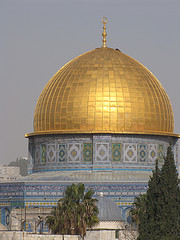
Preventing progress in Palestine: Israel must do more to break the deadlock
In Israel and the Palestinian territories, decades of conflict have not offered ripe soil for mutual understanding and peace on reasonable terms. Endless confrontation has eroded hopes for successful negotiations. Nonetheless, the frequent reference to a ‘status quo’ in the Israeli-Palestinian conflict is mistaken – in my opinion, it’s pure political rhetoric and this conflict is anything but one of attrition. Every day, new settler houses are being built in the West Bank and east Jerusalem – on Palestinian land. Everyday bricks are added to the anti-terrorist fence (or apartheid wall, as some call it), thereby outcasting communities of shared history, as well as hindering commerce and splitting communities (and families) apart. The Israeli government, meanwhile, has authorised the building …
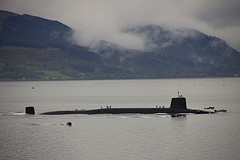
Forget the spending row: Nuclear deterrence is cheap at the price
My Oxford colleague Blake Ewing makes an engaging case in favour of the UK pursuing unilateral nuclear disarmament — that is, scrapping the planned replacement programme for the Royal Navy’s Vanguard-class submarines, which currently carry the Trident D5 missile — as a solution to the country’s fiscal travails. Blake and I agree on many things. The folly of cutting the BBC World Service, one of the UK’s unique sources of global influence, is one. The wisdom — or lack thereof — of pursuing or retaining nuclear weapons as a status symbol is another. The merits of avoiding doctoral dissertation work by engaging in procrastinatory blogging would appear to be a third. However, on the question of unilateral disarmament, our advice to …
Dealing with Iran’s Nuclear Ambitions — and what it means
In the last few weeks, there has been a flood of articles asking and seeking to answer, ‘What is Iran thinking?’. It is an important question and I certainly don’t have an answer. But to try and understand Iran’s motives, we need to put its actions in the social and political context of the norms of the current non-proliferation ‘regime’ and the nuclear reality of today’s world. The media discourse on Iran and nukes should bring to the forefront an old but significant question about the relevance (or rather the irrelevance) of nuclear weapons and the failings of the non-prolifeation regime. This are not new queries. But as much as it sounds like old wine in a new bottle, we …
Solve Syria, Don’t Provoke Iran
From Project Syndicate in Collaboration with Martin Van Creveld: Israel is daily ratcheting up its threats to attack Iran over its nuclear program. Unfortunately, these threats have come to overshadow more pressing events in Syria, which is the epicenter of a regional crisis that will determine the future of the Arab Spring, as well as Iran’s role in the Middle East. Throughout 2011, the Arab uprisings were driven by each country’s internal dynamics. Yet the disparate movements were united by the pursuit of freedom, dignity, and economic opportunity. Now this liberal narrative is breaking down. Chaos reigns in Egypt and Libya, where post-revolution authorities are proving too brittle either to consolidate their authority, or to incorporate more popular forces. In …
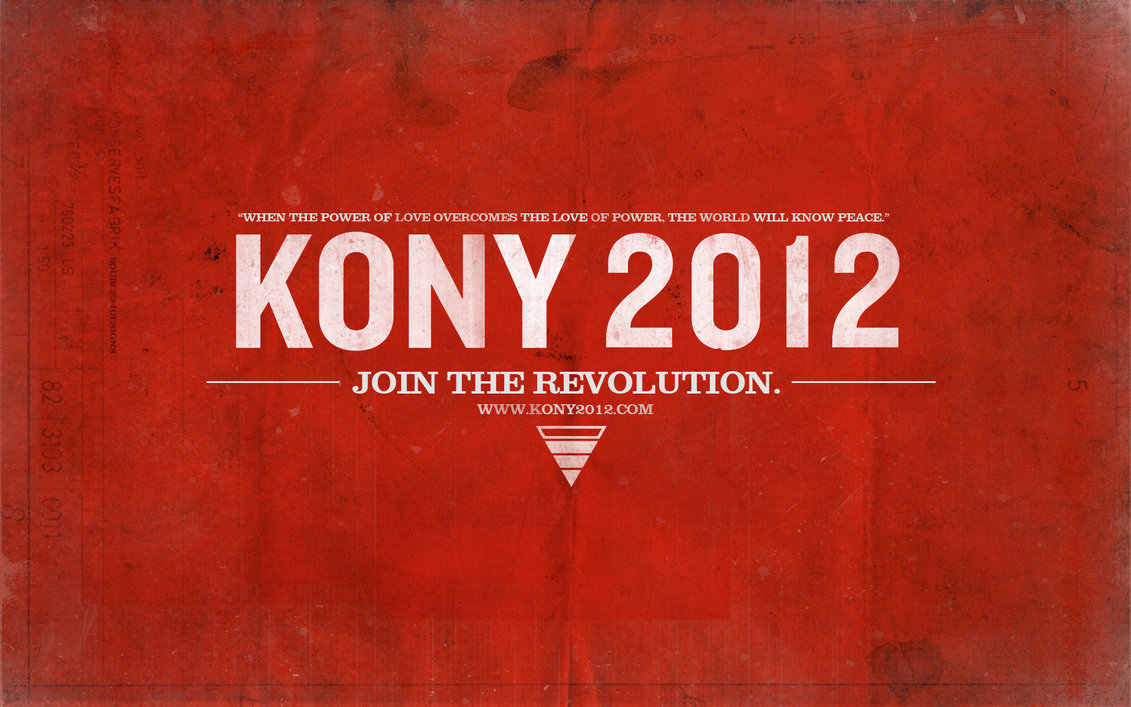
Slackers and Saviours, Kony 2012
Much has been said of the viral Kony 2012 campaign, ‘a film and campaign by Invisible Children that aims to make Joseph Kony famous… to raise support for his arrest and set a precedent for international justice’. The last page of the Invisible Children Kony 2012 action booklet reads, ‘Joseph Kony is the worst living criminal…He remains at large because he is invisible to the world. Few know his name, even fewer know his crimes. This year we are making Joseph Kony famous, because when he is, the world will unite for justice and demand his arrest’. The Campaign The campaign kicked off with the release of a (painfully narcissistic) 30-minute film that grossly oversimplifies the conflict and the actors. …
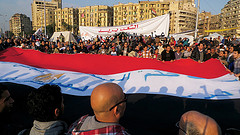
An absent-minded Islamic Revolution? The rise of the Islamists after the Arab Spring
The Arab world shocked us twice in recent months, once with the eruption of the revolutionary spring, and again with the sweeping to power of Islamist parties. The revolutions have radically shifted the political map of the region and transformed the world’s perception of its politics, and even transformed the world. But the equally unanticipated, and very decisive, ascendancy of the Islamists, from Morocco to Kuwait, has confused many observers. Already some are repeating the old adage, voiced most provocatively by Elie Kedourie in 1992, that the Arabs do not comprehend, let alone desire or deserve democracy. It is interesting that Kedourie was responding to the results of an opinion poll which showed that the majority of Egyptians supported democracy, …

KONY 2012: the latest source of armageddon fatigue
Social media has contributed to some of the largest political events of the last couple of years. It aided the Arab Spring, has been a constant thorn in the side of the Chinese authorities, has given Vladimir Putin and Mahmoud Ahmadinejad slight cause for concern, and it helped to organise the less-constructive London riots. The latest social media innovation is KONY 2012 by the advocacy group “Invisible Children.” The campaign, which went viral this week, is aimed at stopping Joseph Kony, the Ugandan-born leader of the Lord’s Resistance Army. The immediate relevance of this campaign has nothing to do with the issue itself, but with the response that it has received. My own knee-jerk reaction when I noticed that a …
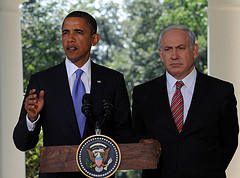
Obama must stand up to Netanyahu
Reposted here is my op-ed in today’s Independent on Obama’s meeting with Netanyahu. It is clear what kind of Israeli prime minister President Obama will be receiving at the White House today. Benjamin Netanyahu is a bellicose, right-wing Israeli nationalist, a rejectionist on the subject of Palestinian national rights, and a reactionary who is deeply wedded to the status quo. Nationalism has an in-built tendency to go to extremes and Netanyahu’s brand is no exception. A nation has been defined as ‘a group of people united by a mistaken view about the past and a hatred of their neighbours’. This definition fits the Likud leader on both counts: he has a selective and self-righteous view of his own country’s history and …









